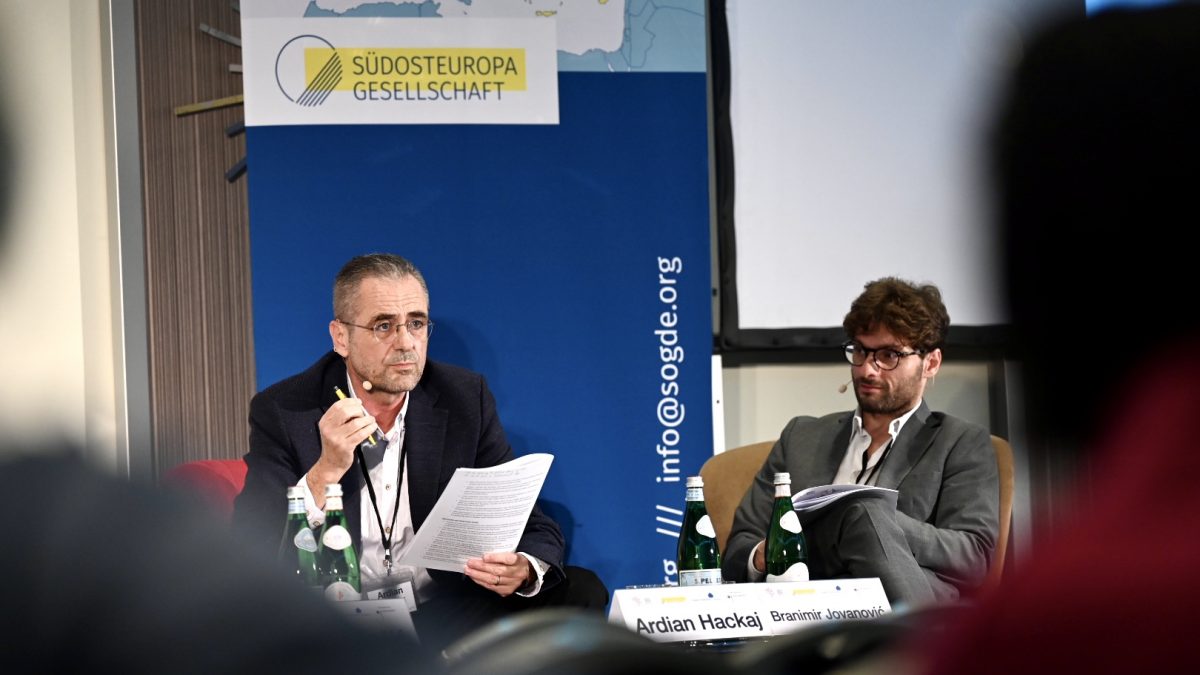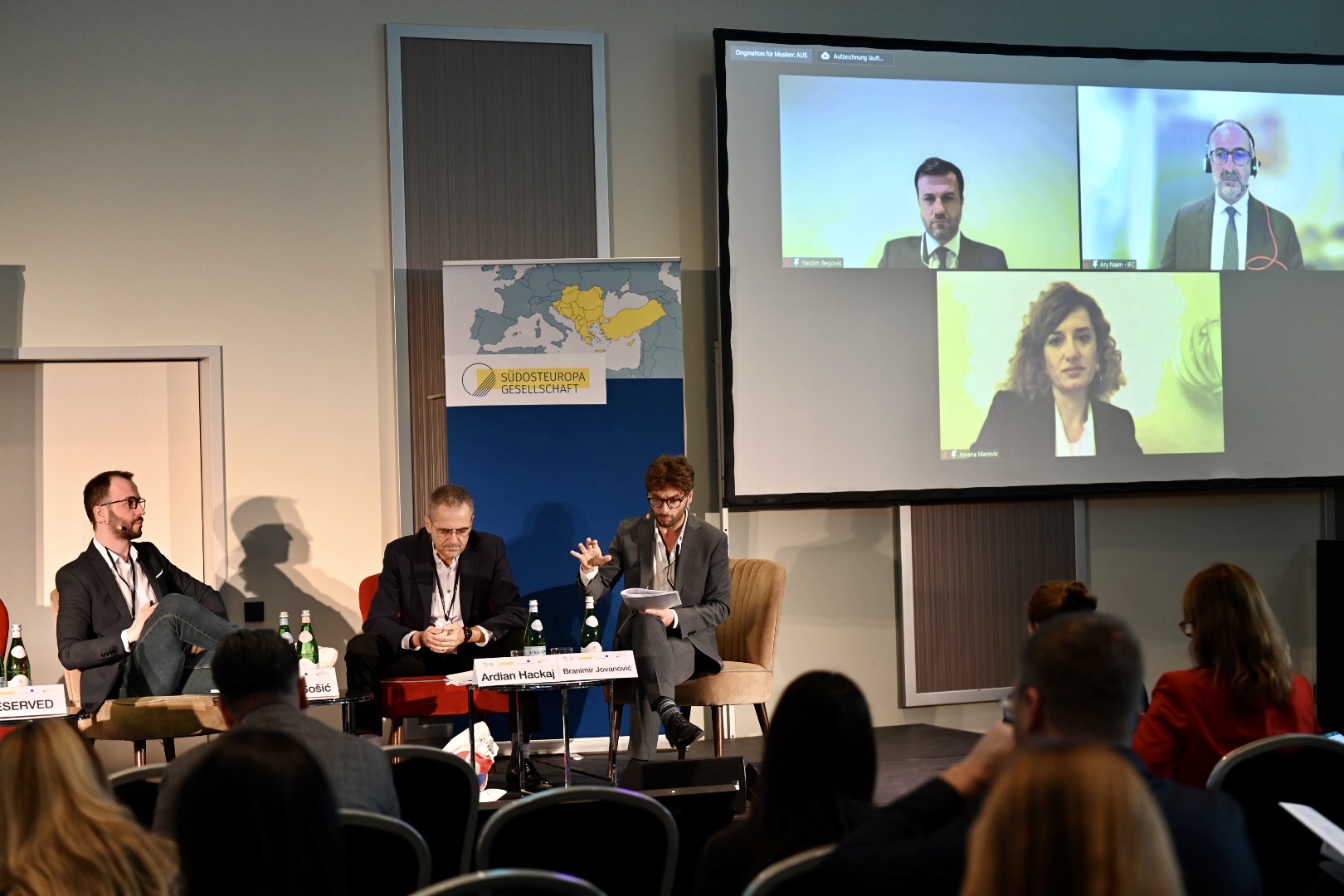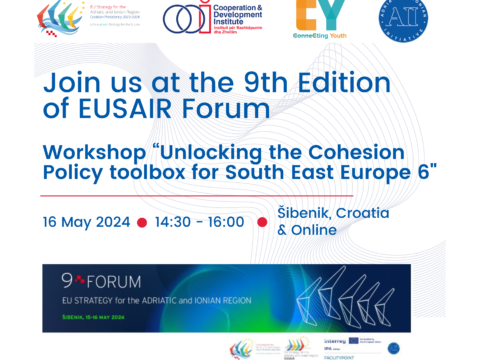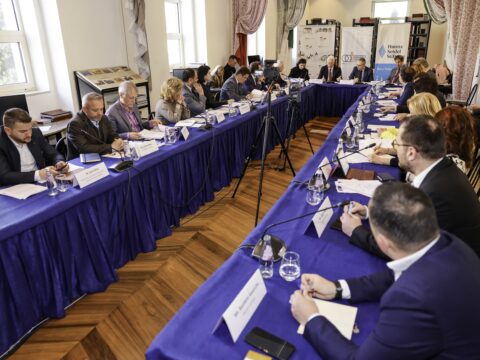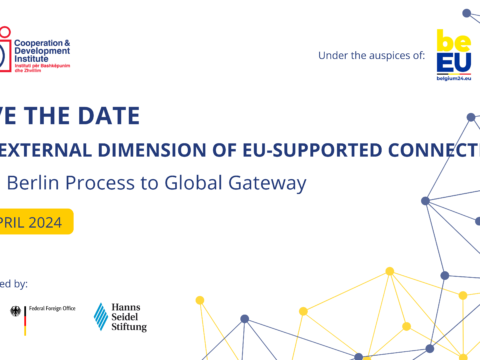4 November 2022
On the 1st and 2nd of November 2022, CDI joined the Berlin Process Civil Society and Think Tank conference organized by ASPEN Institute and Sudost Europa Gesellschaft and held in Berlin. The conference aimed to provide a platform for networking, best-practice exchange, joint planning among CSOs from the region and the EU, and to facilitate cross-regional and transnational civil society initiatives and ideas.
Mr Ardian Hackaj, Research Director of CDI together with Marko Sošić from the Institut Alternativa were CSO rapporteurs in Panel 4. As such they presented the resulting policy recommendations for “Ensuring Sustainable and Resilient Infrastructure Investments”, as follows:
i) WB6 Infrastructure projects must ensure civil society engagement from identification to audit;
ii) Specialised CSOs should monitor infrastructure project integrity compliance;
iii) Open up the WBIF to WB6 citizen representatives: sector-specialised CSOs should enjoy the same rights as WB6 businesses.
The panel was composed of H.E. Jovana Marović, Montenegro’s Deputy Prime Minister and Minister of EU Affairs; Ary Naïm, Regional Manager for Central & Southeast Europe at the International Finance Corporation, and Nedim Begović, Green/Multimodal/Innovative transport solutions Desk Officer at the Transport Community Secretariat.
During the presentation, both rapporteurs underlined the need for CSO to participate from the drafting phase in policy-making and from identification to audit in the infrastructure project cycle.
The debate brought in the need for more and better expertise in local institutions when dealing with complex infrastructure projects, the role of the private sector in such projects, and the obligation to develop them under the EU policy and regulatory framework. In that context, the contribution of CSO as a partner and not as a beneficiary is paramount to a better governance of both policies and infrastructure projects. The recommendations of the panel were designed to feed the CSO presentation to the heads of government at the Western Balkan Summit held the day after.
During the WB Summit held on November 3 in Berlin, three agreements were signed by Western Balkan leaders, specifically on Freedom of Movement with ID cards; Recognition of Higher Education Qualifications; and Recognition of Professional Qualifications for Doctors, Dentists and Architects. More information on those agreements can be consulted here.
Berlin Process is injecting political will into regional cooperation and acceleration of EU Enlargement. The agreements signed speed up the region’s convergence with the EU. The next step is their implementation, a process in which civil society must be a partner.
As per the Chair’s conclusions, Berlin Process will continue in order to harness the full potential of improved and inclusive regional cooperation. Albania will welcome the next Berlin Process summit in 2023.
Read here the BP Summit’s conclusions.



